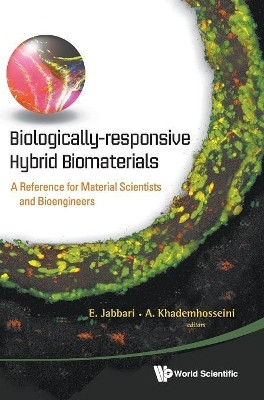Biologically-responsive Hybrid Biomaterials: A Reference For Material Scientists And Bioengineers(English, Hardcover, unknown)
Quick Overview
Product Price Comparison
Conjugation of synthetic materials with cell-responsive biologically-active molecules, in addition to providing structural support and release of biomolecules in the regenerating region, can provide the signaling factors required to initiate the cascade of cell migration, adhesion, differentiation, maturation, growth factor modulation, maintenance of matrix integrity, and tissue morphogenesis. Nanoparticles conjugated with ligands that preferentially interact with cell surface receptors in the tumor environment have the potential to drastically improve bioavailability, selectivity and residence time of the chemotherapeutic agent in the tumor microenvironment, while limiting their peripheral toxicity. Multivalent presentation of tumor-associated antigens on a targeted delivery system containing T and B cell epitopes can result in strong, long-lasting, self-adjuvant immunity against cancer and other diseases in vaccination. These examples demonstrate that cell-responsive conjugate biomaterials have profoundly impacted the medical field.This book is divided into three sections. In the first section, synthesis and characterization, conformation, structure-activity, self-assembly, and host response of conjugate hybrid biomaterials are covered. The second section is dedicated to the applications of conjugate biomaterials in drug delivery and vaccination while the last section is devoted to tissue engineering applications including cell adhesion, control of the stem cell niche, cartilage regeneration, neural and vascular tissue engineering, and dynamic cell culture systems for functionalized biomaterials.There is no doubt that biologically-responsive conjugate biomaterials play a key role in the design of biologics and medical devices, and this pioneering reference book provides a comprehensive review on synthesis, characterization, structure-activity, 3D assembly/fabrication, host response and the emerging applications of conjugate hybrid biomaterials.


